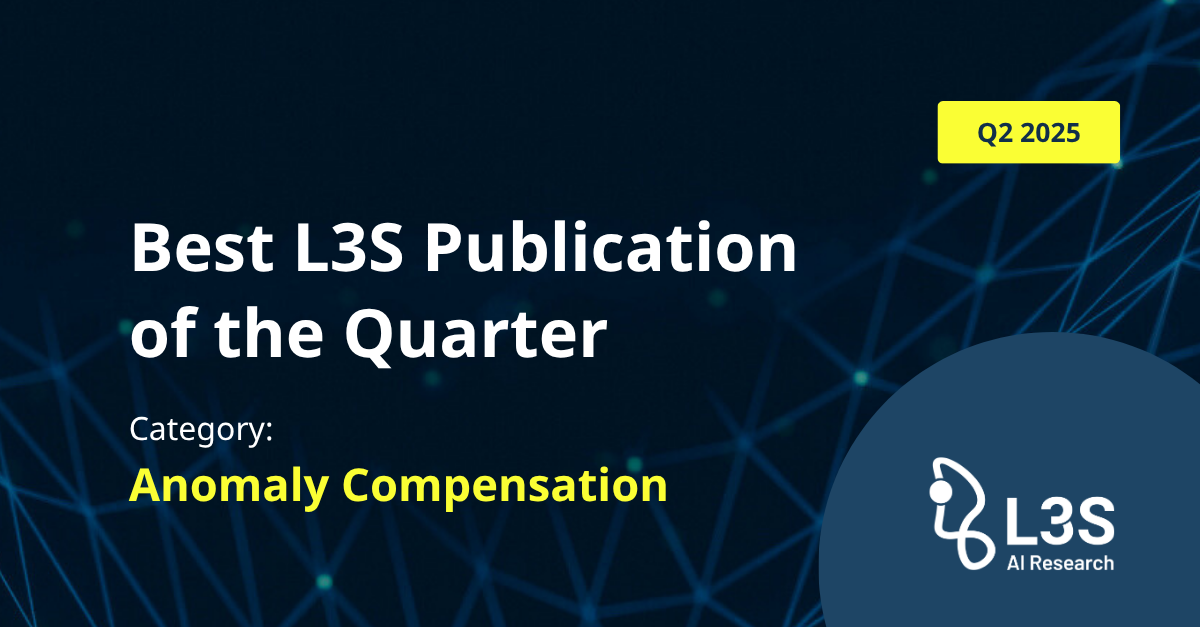L3S Best Publication of the Quarter (Q2/2025)
Category: Anomaly Compensation
AutoML for Multi-Class Anomaly Compensation of Sensor Drift
Authors: Melanie Schaller, Mathis Kruse, Antonio Ortega, Marius Lindauer, Bodo Rosenhahn
Published in Measurement: Journal of the International Measurement Confederation
The paper in a nutshell:
Our research addresses the problem of sensor drift in industrial systems, which can lead to inaccurate data and thus to decision-making failures. We propose a new method using Automated Machine Learning (AutoML) techniques to compensate for sensor drift. By doing so, our approach improves the accuracy and reliability of machine learning models over time, even as they encounter evolving sensor drift due to sensor degradation. Furthermore, we propose a novel training paradigm to better understand the amount of sensor drift over time within the data.
Which problem do you solve with your research?
We solve the problem of sensor drift, which occurs when sensors’ measurements become inaccurate over time due to environmental changes, aging, or contamination. This drift can lead to poor performance in systems relying on sensor data. Our research proposes a method to automatically identify and adjust for these drift effects, ensuring that the output of machine learning models remains accurate and reliable.
What is new about your research?
Unlike traditional methods that often handle sensor drift reactively, our approach uses Automated Machine Learning (AutoML) techniques to proactively learn and compensate for drift effects. This enables continuous adaptation, improving the long-term performance of systems using sensor data. Our novel training strategy also ensures that machine learning models can generalize better to new, unseen drift patterns.
What is the potential impact of your findings?
Our findings can significantly enhance the reliability and accuracy of industrial systems, autonomous vehicles, and other intelligent devices or cyber-physical-systems (CPS) that rely on sensors. By improving data quality and accuracy, our method can lead to better decision-making processes, reduce the frequency of maintenance interventions, and extend the lifespan of sensor-dependent systems.
Paper link: https://doi.org/10.1016/j.measurement.2025.117097


